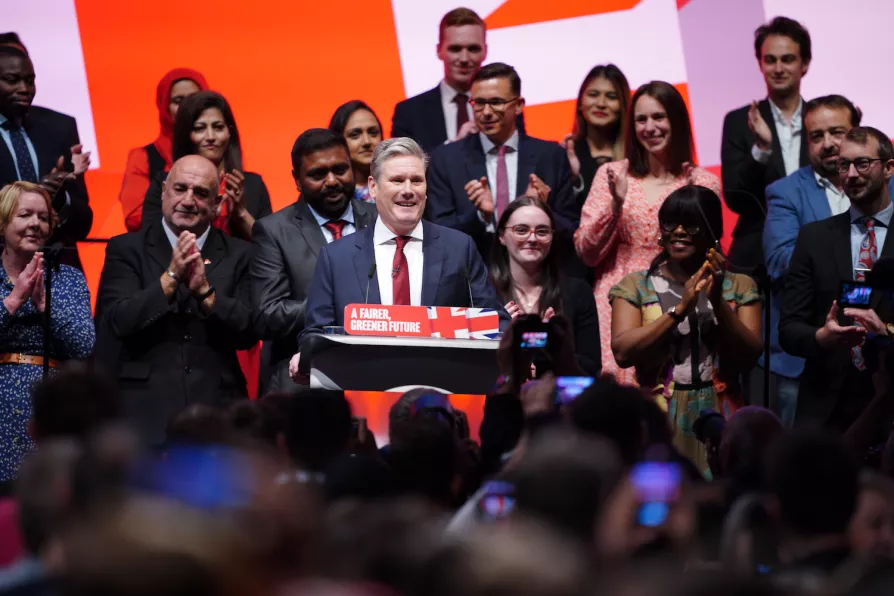RICHARD BURGON MP speaks to Ben Chacko about the Labour right’s complicity in the Mandelson scandal and the need for a total break with Starmerism if the party is to defeat Reform

 Party leader Sir Keir Starmer making his keynote address during the Labour Party Conference at the ACC Liverpool. Picture date: Tuesday September 27, 2022.
Party leader Sir Keir Starmer making his keynote address during the Labour Party Conference at the ACC Liverpool. Picture date: Tuesday September 27, 2022.
KEIR STARMER’S Great British Energy announcement, a proposed energy firm that will be a “partnership” between the government and private business, is part of a slight leftwards lean.
Partly this is because now the “moderates” fully control the party they don’t just see abandoning public ownership as part of their primary mission — which was unseating the left.
In charge, they can let their hair down and promise voters something. But in part it is also because the left kept pushing on the idea of publicly owned energy to address the crisis. The left kept the idea alive and as the right has few ideas, its has adopted this one.

Martin Taylor, the hedge-fund multimillionaire who has poured millions into pushing Labour rightwards, helped finance Lucy Powell’s supposedly dissenting campaign — suggesting her victory was not the ‘soft-left’ rebellion some have claimed, says SOLOMON HUGHES














